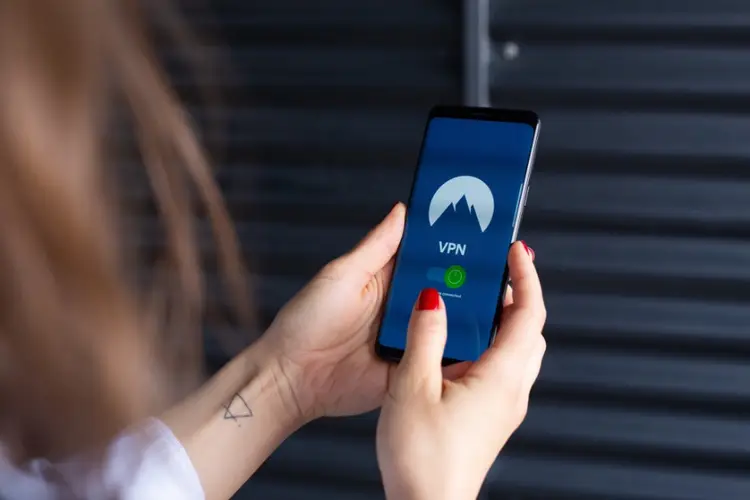VPN: Understanding Its Functionality and Operational Mechanisms.

Many individuals now understand the concept of a VPN, which stands for virtual private network. Recent data indicates that VPN adoption is growing globally, with more people using them to access blocked media streaming services, alter their IP address, and view uncensored content online.
An aspect of this technology that is not widely known is that utilizing a VPN can allow you to remain unidentified. To clarify, being anonymous is a benefit that you will appreciate!
In addition, a lot of people have been introduced to VPNs through sponsored ads on YouTube and tech websites where the promotion of VPNs has become quite common.
Using a VPN may not be necessary for everyone, but discovering its benefits may make you want to try it out. However, it's crucial to acknowledge that VPNs have their own limitations too. No software is flawless, which is why you should carefully choose the right VPN that suits your needs (with so many VPN options available, it can be overwhelming).
Can you explain what a VPN is?
A VPN is a way to protect your privacy online. It does this by hiding your real IP address and creating a safe, encrypted tunnel for your internet connection. This means that nobody can track your online activity or see what you are doing. It also allows you to access blocked websites, such as geo-restricted content. This means you can watch Netflix shows from other countries, but it also means you can access news and media from countries where the government restricts what you can see online. Some countries even block entire parts of the internet.
Fortunately, there is some positive news. Once you have downloaded the VPN software, you can effortlessly safeguard your device and unblock global content without any limitations. Nevertheless, what exactly is a VPN and how can it ensure your safety and privacy while you surf the web? Although user-friendly, comprehending the technical aspect of VPNs can be somewhat challenging. Let's break it down in straightforward language.
Connecting to a VPN is usually a straightforward process. First, you'll need to register for a VPN service and then download and install their software. Once that's done, simply select a server to connect to and let the VPN do the rest. By doing so, your internet connection will be safeguarded and your WiFi or ethernet's location will be changed by the VPN. Essentially, this provides an added layer of protection for your online activities.
What is the Importance of Having a VPN?
Have you ever wondered why you should use a VPN? The answer lies in the fact that when you are using the internet, your device is constantly sending and receiving data from various sources. In addition to this, you may unknowingly expose your actual IP address to websites and other individuals who may misuse it to access your location, browsing history, device details, and more. Your IP address, also known as the internet protocol address, typically starts with a numerical value like 10.0.10.23 or 192.168. Therefore, using a VPN can help protect your privacy and keep your online activities secure.
The way it happens is when your web connection goes through a server in the VPN network, your information gets coded. Also, you obtain a new unknown IP address from the company you bought the package from.
Afterwards, your electronic device such as your computer or smartphone will be connected to the internet through a safe tunnel. This means that your online activities and personal information are hidden from your internet provider, police, cyber criminals, and other outsiders. However, it is important to note that engaging in illegal behavior on this platform can still potentially lead to identification. In fact, many criminals prefer to use the Tor network for added security, but even that is not completely foolproof.
Let's talk about the downsides. Despite the fact that encryption technology is generally reliable, a cheap and low-quality VPN provider may monitor your internet usage. To ensure your privacy and security, it's strongly recommended to choose a no-logs VPN.
There are some boundaries to what a VPN can accomplish. To securely and privately browse the internet, you must follow some extra privacy measures. One of these includes regularly deleting your cookies. Additionally, VPNs come with certain limitations.
For example, if you don't use a privacy browser like Brave, Tor or Firefox Nightly, internet data harvesting algorithms can still track your online activity and device even if you have a VPN. Additionally, using a VPN may potentially slow down your internet connection due to the added layer of security. However, the extent of the slowdown depends on the VPN provider's quality. If you use reputable VPN providers such as NordVPN, ExpressVPN, Surfshark or CyberGhost, there will likely be minimal speed loss. Additionally, high-quality VPNs can prevent connection problems and prevent websites from detecting and blocking your VPN IP address.
To wrap things up, opt for a top-notch VPN service that doesn't keep any records and has successfully undergone third-party security and privacy checks. Trustworthy VPNs are secure and legal in the majority of countries.
Many individuals are uncertain if VPNs are legal or not. The reason being, VPNs allow you to enhance your privacy on the internet, which can be beneficial to cybercriminals including hackers. When they cannot be traced online, it becomes hard to hold them accountable for their actions. Nonetheless, this doesn't mean that using a VPN is illegal.
Many reliable companies and businesses actually use VPNs and recommend them. VPNs can offer you more freedom when using the internet, which is something that the European Union also backs.











































